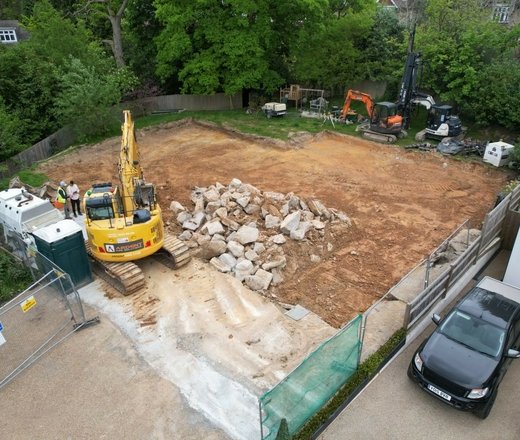With sold property prices on the slide in many areas of the country, increasing numbers of homeowners are delaying their sale plans. Some may feel they have no option if their property is currently in negative equity. However, even those whose homes are still worth more than the mortgages secured on them may be worrying about their ability to meet those existing mortgage obligations in light of the current – and possible future – economic situation.
Downsizing: mortgage or no mortgage?
Some in this group may decide that selling their property is, after all, a sensible decision that will enable them to downsize and free up extra cash. For a lucky few, who can sell their existing property for a sum that is sufficient both to repay their outstanding mortgage and buy a new, cheaper, property outright, this means becoming mortgage-free. For most, however, it is likely to mean retaining a mortgage, albeit a smaller one.
Selling a mortgaged home
It is often simpler if a sale and purchase comes at the end of an existing mortgage term, thus freeing up the homeowner to seek out a more favourable deal. However, life is rarely as neat and convenient as this. Consequently, if you’re looking to sell a mortgaged property and buy a new one, your first step must be to check the terms of your current mortgage. If you don’t already have them to hand, you can ask your lender for the terms and conditions of your mortgage, although you should be aware that it may take them up to ten days to send these to you.
When to seek an advisor
If you know you’re going to need a mortgage to fund your onward purchase, this is also a point at which you may wish to seek advice from an independent mortgage broker or advisor. Such a person will be able to advise you on the best course of action for your circumstances, as well as being able to direct you towards the most advantageous mortgage products.
Early repayment penalties
Even if you were not intending to buy another property, redeeming any mortgage usually involves certain costs and perhaps also financial penalties. Some of these costs are administrative and apply to anyone redeeming their mortgage. Others apply to those redeeming their mortgage within a pre-defined period during which an early repayment charge applies.
You can find out whether or not this is applicable to you by referring to your mortgage terms and conditions. This is most likely to apply if you have not been in your current property for very long and are still within an introductory offer for your mortgage. You can expect to pay up to around 5 per cent of your outstanding loan amount in order to redeem the mortgage early.
Applying for a new mortgage
Attracted by the prospect of more favourable interest rates or term lengths, many homeowners making an onward purchase prefer to apply for a new mortgage. Although this may be from a different provider, do bear in mind that your existing lender is likely to be keen to retain your business. This means that it is sensible to see what that lender can offer you and then to use that as a benchmark to compare products from other lenders.
Affordability check disagreements
It is almost always best to engage the services of an independent financial advisor. However, this will not avoid the need to go through your chosen lending institution’s affordability checks. If you disagree with the outcome of an affordability check, you should put in a written complaint to the lender concerned. If this does not resolve the situation within eight weeks, you are entitled to contact the Financial Services Ombudsman.
Porting your mortgage
Alternatively, you may be keen on “porting” your mortgage. This means that you take your existing mortgage deal to your new property while retaining the same terms and conditions, loan amount and interest rate. Porting avoids paying any early repayment charges, as well as remove the arrangement fees inherent in most new mortgage products.
Porting a mortgage is at the discretion of the lending institution concerned. If you want to take this option, you must use the details of your intended property purchase to reapply for your current mortgage deal. It is important to be aware that approval is not automatic; the lending institution will assess your application on the basis of its current lending criteria. If these are more stringent than those used for your first application or if your financial circumstances have changed, your application may be rejected or you may be offered a lower amount. If this happens, you may want to explore alternatives with other lenders or you may wish to challenge your lender’s decision.
Property valuation
If your application to port your mortgage is approved, you can expect the lender to conduct a valuation of the new property. Although this will usually incur a fee of several hundred pounds, you should note that a valuation for mortgage purposes is not the same as a structural survey. Mortgage valuations rarely uncover anything aside from obvious defects in a property and valuers base their estimates on their knowledge of the local property market. Recent sold property prices are relevant to this as well as the condition of the property in question.
After the property is sold
On completion of the sale of your current property, the outstanding mortgage on that property is repaid. This is immediately followed by the coming into effect of the ported loan on your new purchase.
Matters may be slightly more complicated if there is a delay between the sale of the first property and the purchase of the second. Some lenders will still allow borrowers to port their mortgage in these circumstances although they may insist that the onward purchase occurs within a specific timeframe (up to six months is common). They may also impose an additional charge. As a result, it is sensible to assess the effect of any additional charge and to work out whether, after all, it might be more cost-effective to apply for an entirely new mortgage product.
Where to search for mortgages
We always advise spending some time to shop around for the right mortgage, otherwise you could be left paying considerably more than you should. A great place to start searching is OneDome, the UK’s first transactional property portal that covers every step of home buying and selling, including mortgages. They use a convenient tool known as the Mortgage Passport, which lets you know how much you can borrow in five minutes as well as compare mortgages from 90+ lenders. The Mortgage Passport is also a way to pre-qualify for a Mortgage in Principle and stand out from other buyers, by showing sellers that you’re in a genuine position to buy.
Mortgage advice
OneDome’s mortgage support team is well versed in every aspect of mortgages, so if you have any questions about the process, give them a call (0203 8686 262). Additionally, their mortgage advisors have a wealth of experience when it comes to helping you choose a mortgage that best suits your needs.
Source:
Market your property with Maddisons Residential
For many, the first point in their house moving journey, is to understand the value of their current home. Whether you want a quick, instant, online indication, or a more robust property specific and individual valuation, we would be delighted to help.






